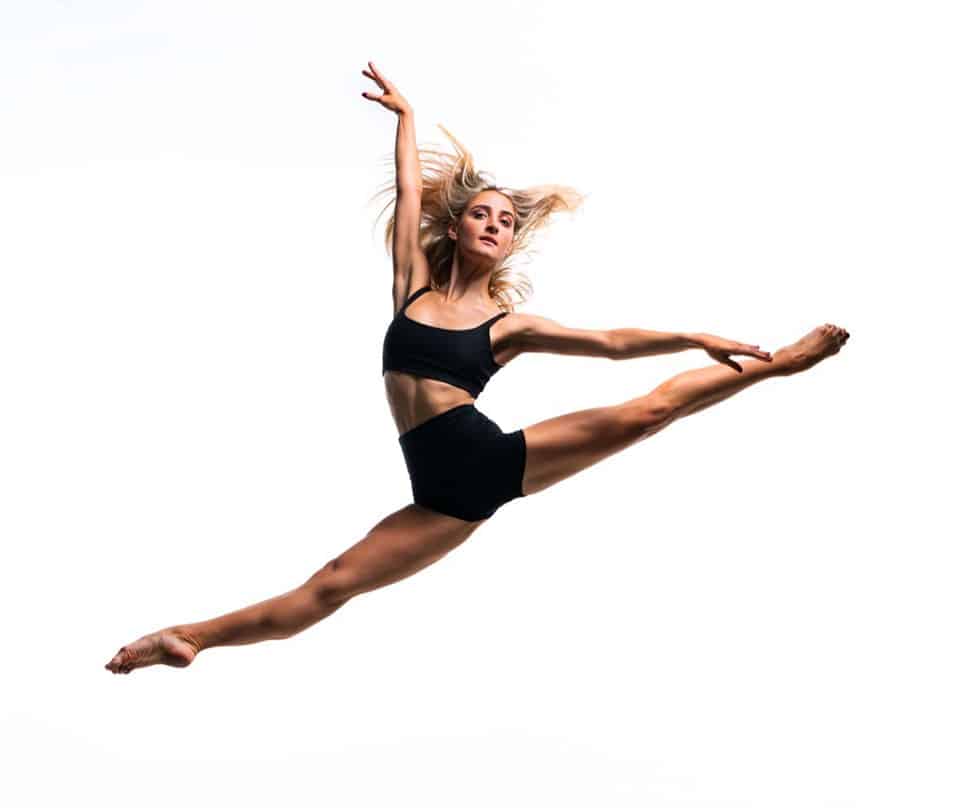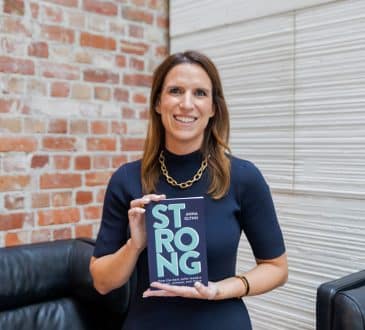Insights from Washington Ballet Ballerina Rachel Rohrich on Why Early Dance Success Demands More Than Just a Strong Work Ethic

Most people know the punch line to the old New York tourist joke, “How do I get to Carnegie Hall?” is “practice.” But as far as The Washington Ballet’s dynamic young corps de ballet member Rachel Rohrich is concerned, hard work is only part of the equation when you set your sights on becoming a professional ballet dancer.
While perseverance is a critical component of success in ballet or any highly competitive field, Rachel Rohrich strongly believes other crucial factors — including one must have the passion, focus, dedication, talent, and willingness to push past your comfort zone in pursuit of your craft — if you want to be among the best of the best in what you do. Having capable, encouraging mentors to guide you through the journey as you hone your skills can also mean the difference between becoming someone who is merely competent and someone who can perform on a professional level.
Fortunately for Rachel Rohrich, her determined attitude, passion, and natural dance prowess were recognized and nurtured from an early age.
An Eye for Talent Leads to a Change of Direction
Rachel Rohrich began her dance odyssey in Dallas, Tex. at age 8. Her first love was jazz. Rohrich fueled her enthusiasm for discipline as a member of a competitive drill team. It was only a chance encounter with the woman who would go on to become her first true mentor that changed the trajectory of Rohrich’s Life.
During a road company workshop performance of the Broadway show “A Chorus Line,” Rohrich caught the eye of Jacqueline Porter, the founding artistic and executive director of the Dallas Conservatory, one of the region’s most prestigious performing arts schools. After watching Rohrich’s workshop performance, Porter recognized her potential. Even though the youngster had no interest in exploring the world of ballet, Porter sensed that Rohrich had an innate gift and talent. After the workshop, she took Rachel and her mom aside and insisted the 8-year-old should begin taking ballet lessons.
While Porter’s hunch turned out to be correct, Rohrich took some convincing. Over the course of the next year or so, a persistent Porter kept in touch, eventually persuading Rohrich to give ballet a chance.
Rohrich Learns a ‘Whole New Language’ and a Major Life Lesson
While Rohrich had the classic lines of a ballet dancer and god-given, raw talent, she admits her late start at age 10 (when her peers had begun ballet practice as early as 3) put her at a disadvantage. She admits her introductory experience was mortifying. “It was the most embarrassing thing,” she recalls. “…I was going into a class of people who [were] classically trained; everyone knew what they were doing… I felt like an alien.”
Though Rohrich wanted to quit initially, her own stubbornness to succeed and desire to be “the best in the room” — greatly augmented by encouragement from her mom and Porter — kept her coming back. While Rohrich says in many ways, the shift from jazz to ballet felt like being dropped in a foreign country and having to learn a whole new language, eventually, ballet choreography became native to her.
But along with mastering a novel vocabulary of dance moves, Rohrich gleaned an equally valuable life lesson: In order to improve and excel, you have to step outside your comfort zone. Learning to accept being uncomfortable in those moments when she was unsure of what she was doing or when she realized she wasn’t on the same level as students with more advanced training wasn’t easy for Rohrich. Still, relying on her tenacity and the encouragement of her mom and her mentor, she managed to push through her discomfort and move ahead.
Perseverance, she asserts, had its rewards. It made her a better dancer and a stronger person. “You’re just going to have to [allow yourself to] be embarrassed,” Rohrich says. “That’s how I learned.”
(Even now, Rohrich admits to feeling insecure from time to time when faced with a new challenge. “But I remind myself, that’s how I got better,” she says, “so it’s okay to be uncomfortable, and it’s good.”)
From Amateur to Professional: Mentorship’s Continuing Impact
When danced correctly, ballet appears almost effortless, as if gravity has been suspended, but it’s a craft that requires years of practice and hours of constant repetition. The physical demands of ballet are matched only by the mental focus required to succeed. Without discipline, neither is possible.
Rachel Rohrich acknowledges that without the support of mentors along the way, her life and her career would likely have turned out very differently. Jaqueline Porter spent countless hours with Rohrich, helping her attain the balance, coordination, strength, and poise required to matriculate to a professional level. When she was ready to make that leap, Rohrich was lucky enough to secure the tutelage of another mentor, The Washington Ballet’s artistic director, Julie Kent.
With Porter’s guidance, Rohrich learned the essentials every dancer who hopes to perform with a company must master. From Kent, she learned how to embrace the fluid solidarity of being part of something larger than herself.
“Julie often talks about the power in the corps de ballet,” said Rohrich, noting a French term meaning ‘body of the ballet.’ “It’s when a lot of dancers dance together in lines and patterns. [Julie says] this is often the most powerful part of any classical ballet… You’re breathing together; you’re working together… It’s really powerful to see this living, breathing unit working together. And to be just a small part of that – I have so much gratitude.”
Rohrich continued:
“If I’m having a hard day, where I’m feeling exhausted… mentally worn out… I know that we’re all feeling worn out, and we’re all feeling tired. Going back to that sense of… breathing together, we’re all doing something super hard together. [That’s what] helps me — just knowing that I’m not alone; we’re all doing this together.”
Being Disciplined in Multiple Disciplines.
Having “corps values” does not keep Rachel Rohrich from chasing her individual dreams outside the realm of ballet. In addition to her being full-time at the Washington Ballet Company, Rohrich is also pursuing a career in medicine. While it’s unusual, Rohrich believes many of the core lessons that earned her success as a ballerina — discipline, passion, dedication, and focus — are directly transferable to the study of medicine.
“I think ballet has taught me many lessons about work ethic and dedication… Even just that experience of pushing through and excelling from when I was ten years old to the new ballets that we work on has taught me a lot about perseverance that has carried over into my studies… Even just persevering through exhaustion, whether it be a really hard ballet or just getting through a 12-hour work day,” with her studies, she reveals.
However, it’s another byproduct of her ballet education that Rohrich believes will give her a leg up on her fellow med students — and that’s compassionate empathy. (Rohrich says it’s a concept her mentor Julie Kent talks about quite often.) “I’m just very thankful for ballet because I feel it’s taught me a lot of compassionate empathy that you can’t get anywhere else,” Rohrich explains, “compassionate empathy in the sense that as artists, we’re storytellers. I remember we were working on ‘Swan Lake,’ and it’s a very strenuous and hard ballet, but there’s beauty in the struggle… and it all comes together to tell a story.”
Hard work, discipline, and fortitude are all part of what it takes to be a professional dancer, but just as being a member of the corps de ballet is an integral facet of Rachel Rohrich’s day-to-day existence, those qualities are only part of the bigger story that is her Life. The most important lessons she’s learned? To excel in Life, you must push yourself outside your comfort zone, Live by your own expectations and set your own limits.
If you’ve got more than one passion, don’t let someone else tell you that you can’t pursue it.
“It’s okay, especially when you’re young, to have self-doubt…..… You can have more than one identity,” she says. “ it’s okay to have an identity outside of what you may be dedicated to… If you have an interest, go pursue it — and don’t care what anybody else thinks [because] it might lead to something really awesome that can help inside your realm of work.”
Life is not a dress rehearsal, so live the moment and cherish it !!
Have you read?
What Is Dumbing Us Down by Henry Mintzberg.
Why Venture Studios Are The Perfect Fit For Venture Capital by Dr. Erik Reis.
GAIN COMPETITIVE ADVANTAGE BY WRITING THOUGHT-PROVOKING BUSINESS BOOK by Jane Wesman.
How Building a Viable Community Can Keep Your Business Going by Mike Fata.
4 Ways You Can Help Build Trust with Your Most Important Stakeholders: Employees by Ingrid Christensen.
Add CEOWORLD magazine to your Google News feed.
Follow CEOWORLD magazine headlines on: Google News, LinkedIn, Twitter, and Facebook.
This report/news/ranking/statistics has been prepared only for general guidance on matters of interest and does not constitute professional advice. You should not act upon the information contained in this publication without obtaining specific professional advice. No representation or warranty (express or implied) is given as to the accuracy or completeness of the information contained in this publication, and, to the extent permitted by law, CEOWORLD magazine does not accept or assume any liability, responsibility or duty of care for any consequences of you or anyone else acting, or refraining to act, in reliance on the information contained in this publication or for any decision based on it.
Copyright 2024 The CEOWORLD magazine. All rights reserved. This material (and any extract from it) must not be copied, redistributed or placed on any website, without CEOWORLD magazine' prior written consent. For media queries, please contact: info@ceoworld.biz
SUBSCRIBE NEWSLETTER








